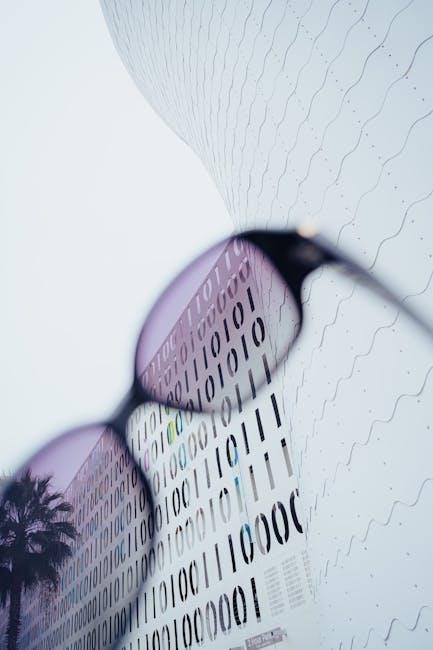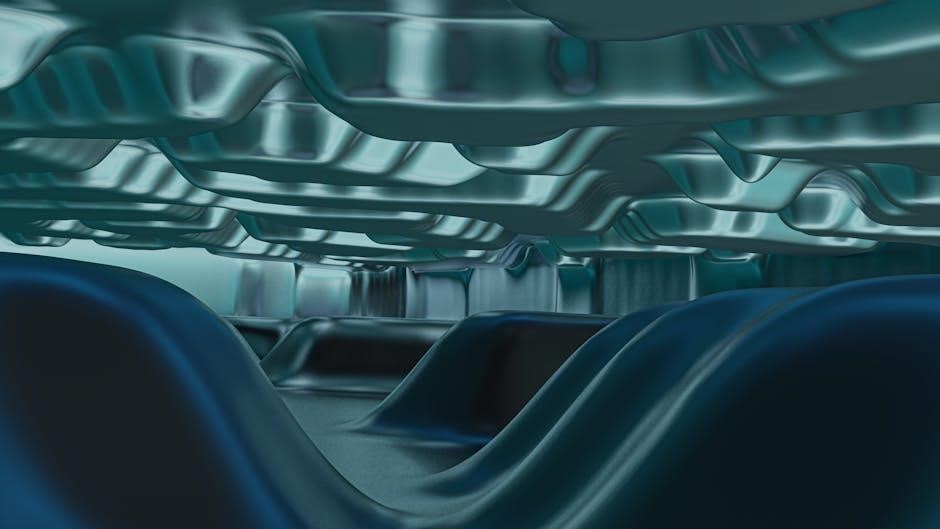Sigmund Freud’s The Future of an Illusion explores religion as a human construct‚ arguing it stems from collective wishes. The PDF version offers accessible insights into Freud’s psychoanalytic perspective on faith and its cultural implications.
1.1 Background and Overview
The Future of an Illusion‚ written by Sigmund Freud in 1927‚ is a seminal work examining religion as a human construct. Freud argues that religious beliefs are illusions stemming from deep-seated wishes‚ offering comfort against life’s uncertainties. The book is part of Freud’s broader exploration of culture and psychology‚ and its PDF version is widely available‚ including in the Standard Edition of his works. It remains a cornerstone of psychoanalytic thought on religion and illusion.
1.2 Key Themes and Objectives
The Future of an Illusion delves into religion’s psychological roots‚ exploring it as a collective neurosis born from humanity’s desire for security. Freud’s objectives include distinguishing illusions from errors‚ emphasizing wish-fulfillment as religion’s core. He advocates for science as a superior path to truth‚ aiming to liberate humanity from illusion’s grip. The PDF version highlights these themes‚ offering insights into Freud’s critique of religion and his vision for a science-driven future.

Freud’s Central Argument
Freud asserts that religious beliefs are illusions stemming from human desires‚ particularly the wish for a protective father figure‚ fulfilling deep-seated psychological needs.
2.1 The Concept of Illusion in Religion
Freud defines religious beliefs as illusions‚ shaped by human desires rather than reality. He distinguishes illusions from errors‚ emphasizing that illusions are rooted in unconscious wishes. Religion‚ according to Freud‚ serves as a collective neurosis‚ offering comfort by fulfilling mankind’s deep-seated longing for security‚ justice‚ and a protective father figure. These illusions‚ while containing elements of truth‚ are not grounded in objective reality but in psychological needs.
2.2 The Role of Wish Fulfillment in Religious Beliefs
Freud asserts that religious beliefs are rooted in wish-fulfillment‚ serving as a collective neurosis. These beliefs act as illusions that provide comfort by fulfilling mankind’s deep-seated desires for security‚ justice‚ and a protective father figure. While not based on reality‚ religion addresses psychological needs‚ offering solace and meaning in an uncertain world. This wish-fulfillment mechanism underpins Freud’s critique of religion as a human construct rather than divine truth.

Historical Context
The Future of an Illusion was published in 1927‚ reflecting Freud’s evolving views on religion amid rising scientific advancements and societal changes. The PDF format ensures its accessibility today.
3.1 The Publication and Reception of the Book
Freud’s The Future of an Illusion was first published in 1927 by the International Psycho-Analytic Press. The book received mixed reviews‚ with some praising its intellectual rigor while others criticized its controversial views on religion. The PDF version‚ widely available today‚ allows modern readers to engage with Freud’s arguments about the psychological roots of religious belief and its potential decline. Its release marked a significant moment in psychoanalytic literature.
3.2 Freud’s Views on Religion and Science
Freud viewed religion as an illusion rooted in human desires‚ contrasting it with science‚ which he saw as a path to objective truth. He argued that religious beliefs‚ shaped by wish fulfillment‚ would eventually decline as scientific reasoning prevailed. Freud believed that science would uncover the truths religion sought to explain‚ leading humanity toward a more rational future. This tension between faith and science is central to his critique of religion in The Future of an Illusion.

The Future of an Illusion and Capitalism
The illusion of economic autonomy under capitalism mirrors Freud’s critique of religious illusions‚ where societal structures create false perceptions of control and independence;
4.1 The Illusion of Economic Autonomy
The illusion of economic autonomy under capitalism parallels Freud’s critique of religious illusions. Capitalism fosters the belief that individuals and markets operate independently‚ free from external influence. However‚ this autonomy is illusory‚ as economic systems are deeply shaped by societal structures‚ power dynamics‚ and collective desires. Freud’s analysis of religion as a human construct extends to capitalism‚ revealing how both systems create false perceptions of control and independence‚ masking the underlying forces that govern human behavior and societal functioning.
4.2 The Role of Capitalism in Shaping Illusions
Capitalism plays a significant role in shaping illusions by creating a false narrative of economic autonomy. While individuals believe they operate freely within the market‚ their choices and opportunities are influenced by systemic structures and power imbalances. Freud’s insights into religious illusions apply here‚ as capitalism fosters a belief in independence that masks underlying dependencies and inequalities‚ maintaining the status quo and limiting true autonomy.
Critique and Analysis
Freud’s critique of religion as an illusion faces scrutiny for logical inconsistencies. Scholars argue his dismissal of spirituality overlooks its cultural and psychological benefits.
5;1 Logical Inconsistencies in Freud’s Argument
Freud’s assertion that religion is a collective illusion faces criticism for oversimplification. Critics argue his dismissal of spiritual experiences neglects their cultural and psychological significance. Additionally‚ Freud’s reliance on psychoanalysis as the sole explanatory framework for belief systems is seen as reductionist. His argument also fails to address how illusions‚ even if untrue‚ can serve adaptive functions in society. These gaps weaken the universality of his critique.
5.2 Opposing Views and Counterarguments
Some scholars argue that Freud’s dismissal of religion as an illusion overlooks its role in providing meaning and moral frameworks. Critics suggest his view is overly reductionist‚ neglecting the cultural and communal value of religious practices. Others propose that Freud’s psychoanalytic lens is too narrow‚ failing to account for the diverse ways religion enriches human experience. These counterarguments emphasize the complexity of belief systems beyond mere wish-fulfillment.

The Role of Science vs. Religion
Freud believed science would eventually replace religion as humanity matured. The PDF version of his work highlights this transition and the decline of religious influence in society.
6.1 Freud’s Hope for a Science-Driven Future
Freud believed that science would ultimately replace religion as humanity progressed. He envisioned a future where rational thought and scientific inquiry would guide human behavior‚ diminishing the need for religious illusions. The PDF version of The Future of an Illusion underscores his optimism in science’s ability to reveal truths‚ fostering a society grounded in reason rather than faith. This transition‚ Freud argued‚ would lead to a more enlightened and mature civilization.
6.2 The Decline of Religious Influence in Modern Society
Freud predicted the decline of religious influence as scientific understanding advances. He argued that as people gain insight into the world through science‚ traditional religious beliefs would lose their authority. The PDF version of The Future of an Illusion highlights this shift‚ reflecting Freud’s belief that rationality would replace faith. This decline‚ he suggested‚ would lead to a more secular and enlightened society‚ where human progress is guided by evidence rather than illusion.

The Psychological Impact of Illusions
Freud examines how illusions‚ like religious beliefs‚ serve as coping mechanisms. The PDF of The Future of an Illusion reveals how these illusions impact mental health and societal behavior‚ shaping human emotions and thought patterns while offering a sense of security in an uncertain world.
7.1 The Child’s Attitude Toward Authority Figures
Freud highlights the child’s ambivalence toward authority figures‚ shaped by dependency and rebellion. This dynamic influences the formation of religious beliefs‚ as illusions of a protective deity emerge. The PDF version of The Future of an Illusion underscores how these early psychological patterns shape adult attitudes toward religion and authority‚ reflecting both fear and longing for security in an uncertain world.
7.2 The Ambivalence Between Religion and Science
Freud examines the tension between religious beliefs and scientific reasoning‚ arguing that religion offers comfort through illusions‚ while science seeks truth. This ambivalence reflects humanity’s struggle between emotional needs and rational understanding. The PDF version of The Future of an Illusion highlights Freud’s belief that science will eventually replace religion‚ as illusions lose their grip in the face of evidence and logical inquiry‚ reshaping societal values and individual worldviews.

The PDF Version and Accessibility
The PDF version of The Future of an Illusion enhances accessibility‚ allowing readers to engage with Freud’s critique of religion and illusion anywhere‚ anytime digitally.
8.1 The Availability of the PDF Format
The PDF version of The Future of an Illusion is widely available online‚ offering convenient access to Freud’s critique of religion and illusions. Digital platforms like DSpace‚ online libraries‚ and psychoanalytic archives provide free or paid downloads; The Standard Edition of Freud’s works‚ including this book‚ is also accessible in PDF format‚ ensuring readability across devices. This digital accessibility has made Freud’s seminal work reachable to a global audience‚ facilitating deeper engagement with his ideas.
8.2 The Significance of Digital Access to Freud’s Work
Digital access to Freud’s The Future of an Illusion in PDF format bridges the gap between classic psychoanalytic theory and modern readers. It ensures that Freud’s critique of religion and illusions remains relevant in contemporary discussions. By making his work accessible online‚ digital platforms foster academic and casual readers’ engagement‚ preserving Freud’s legacy and promoting ongoing dialogue about religion‚ science‚ and human psychology in the digital age.
The Legacy of “The Future of an Illusion”
The Future of an Illusion remains a cornerstone of psychoanalytic thought‚ influencing modern debates on religion and science. Its PDF availability ensures enduring relevance and accessibility‚ preserving Freud’s critique for future generations and contributing to ongoing discussions about human psychology and cultural evolution.
9.1 Influence on Modern Psychoanalytic Thought
Freud’s The Future of an Illusion significantly shaped modern psychoanalytic thought by exploring religion as a collective illusion rooted in human desire. Its arguments about wish-fulfillment and the role of authority continue to inspire debates. The PDF version ensures accessibility‚ preserving Freud’s critique of religion as a neurotic response to reality. While critiqued for its reductionism‚ the work remains a foundational text‚ influencing discussions on psychology‚ culture‚ and the interplay between belief systems and human behavior.
9.2 Continued Relevance in Contemporary Discussions
Freud’s The Future of an Illusion remains relevant today‚ sparking debates on religion‚ science‚ and human psychology. Its critique of religious belief as an illusion resonates in modern discussions about rationality versus faith. The PDF version ensures Freud’s ideas are accessible‚ influencing contemporary thought on illusion’s role in shaping societal and individual behavior. This work continues to provoke dialogue‚ making it a timeless piece in both academic and cultural contexts.
Freud’s The Future of an Illusion concludes by emphasizing the enduring relevance of his critique of religion as an illusion shaped by human desires. The PDF format ensures accessibility‚ preserving his psychoanalytic insights for modern readers. His arguments remain pivotal in debates about reason‚ faith‚ and the future of human belief systems.
10.1 Summary of Key Points
Sigmund Freud’s The Future of an Illusion argues that religion is an illusion rooted in human desires‚ offering comfort through wish fulfillment. The PDF version highlights Freud’s critique of religious beliefs as neurotic defenses against life’s uncertainties. He advocates for science and reason to replace religious illusions‚ envisioning a future where humanity embraces reality. The text remains influential‚ sparking debates on faith‚ science‚ and the psychological underpinnings of belief systems in modern society.
10.2 Final Thoughts on the Future of Illusions
In The Future of an Illusion‚ Freud contends that illusions‚ including religious beliefs‚ will diminish as science advances; The PDF version underscores his belief in reason’s triumph over irrationality. However‚ illusions persist‚ adapting to societal changes. Freud’s work challenges readers to confront reality‚ suggesting that while illusions may evolve‚ their role in human life remains complex and enduring‚ shaping both individual and collective consciousness in profound ways.

Leave a Reply
You must be logged in to post a comment.